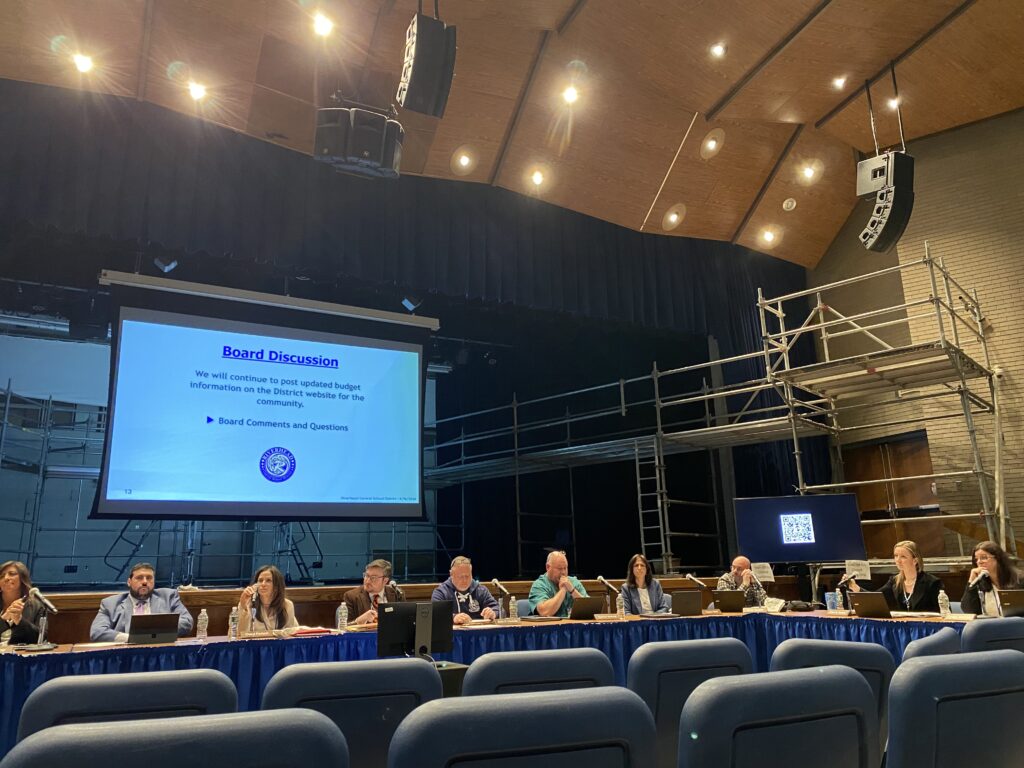Schools seeing students ‘opting out’ of state exams
Riverhead parent Angela Partridge’s 8-year-old son arrived late to school Wednesday morning. She dropped him off at Riley Elementary School in Calverton about 11 a.m. to join his third-grade class.
The late start wasn’t due to a faulty alarm clock. It was because Ms. Partridge didn’t want her son to sit quietly in a room — away from his classmates and teacher for 90 minutes — reading a book by himself while a small group of students requiring assistance took an exam he was scheduled to take.
That was how her son spent his time the day before, Tuesday, after refusing — at his mother’s request — to take the state-mandated English assessment.
Ms. Partridge and other parents across Long Island and New York State have committed to have their children “opt out” of taking state tests this week, a statement they are making to Albany to express their displeasure with its testing model.
“For the past two months, they’ve just been preparing for these tests,” Ms. Partridge said about her son’s class. “It’s taking them away from the enrichment of what third grade is supposed to be.”
The mother of three said she sent a letter to principal David Enos and Superintendent Nancy Carney last week explaining why she doesn’t want her son take the state assessments.
“I’m not against testing,” Ms. Partridge said. “I think it’s great, as long as it’s written by the teacher and is appropriate for the students.”
Many educators predict dramatic drops in their students’ standardized test scores — not because students aren’t prepared, but because new standards have resulted in exams that are more rigorous than in years past.
This year, English and math state assessments include elements of the Common Core State Standards Initiative. The common core standards are a new set of national benchmarks to help public school students master language arts and mathematics. It requires instructors to teach more non-fiction and rigorous math to students at a younger age. The move aims to better prepare students for college and careers.
The state’s lesson plans are created and updated frequently online at engageny.org.
The results of the new assessments are also tied to the state-mandated annual professional performance review plans, known as APPR. The teacher evaluation requirement originated in 2010 after New York was awarded a grant of nearly $700 million under the federal Race to the Top program. For school districts to qualify for part of the grant, the state required them each to implement their own APPR program.
Riverhead Charter School principal Raymond Ankrum told the News-Review he believes a growing number of parents are becoming concerned about how the state is measuring the growth of students and educators.

“I’m not sure if I agree or disagree with [opting out],” he said, adding that as of Wednesday, only one of his students had refused to take state assessments. “However, I must say that I am extremely impressed with parents exercising their right to do what they think is best for their students.”
Ms. Carney confirmed Wednesday that out of 2,177 Riverhead students in grades 3 through 8, seven students who were present declined to take tests.
“We followed state regulations, which states that ‘All students must have an exam placed in front of them, students must place their name on the exam and the directions must be read to them,” Ms. Carney said in an email. “If, at that time, a student chooses not to take the exam, the test is coded as such. Teachers were to let the student read quietly until the end of testing time.”
“As per the [state Department of Education], there is no ‘opt-out’ option,” she said of the phrase, which could be misleading.
Over at the Shoreham-Wading River School District, Superintendent Steven Cohen said Wednesday about 20 students out of nearly 1,200 students in grades 3 through 6 didn’t take the test.
According to a letter from the state Education Department issued in January to schools, there will be a “negative impact” on a school district’s accountability if it fails to meet a 95 percent participation rate in state testing.
“State testing is considered an important part of instruction in education programs,” the letter states. “It provides an evaluation of student mastery of content and skills in various courses of study and helps shape future instruction.”
Riverhead Central Faculty Association union president Barbara Barosa said this week the Riverhead district’s policy is to “not encourage nor discourage students opting out.”
“Parents need to do whatever they feel is necessary,” she said.
Ms. Barosa said she’s organizing a June 8 trip to Albany for a rally, not only to discuss the new state tests, but other issues parents and educators have about how children are being educated. [For more information on the rally, call (631) 727-2262.]
Ms. Partridge said she understands the position educators are in, and believes a grassroots effort, such as the Facebook group, called “Long Island Opt-out Info,” is the best way to currently deal with state assessment concerns.
“I feel they really need the parents to stand up to say, ‘This isn’t right,’” she said. “[Educators’] hands are really tied.
“But I think if we don’t do something then nothing will happen.”
Read more in next week’s News-Review newspaper.
Follow News-Review education reporter Jennifer Gustavson @jengust









